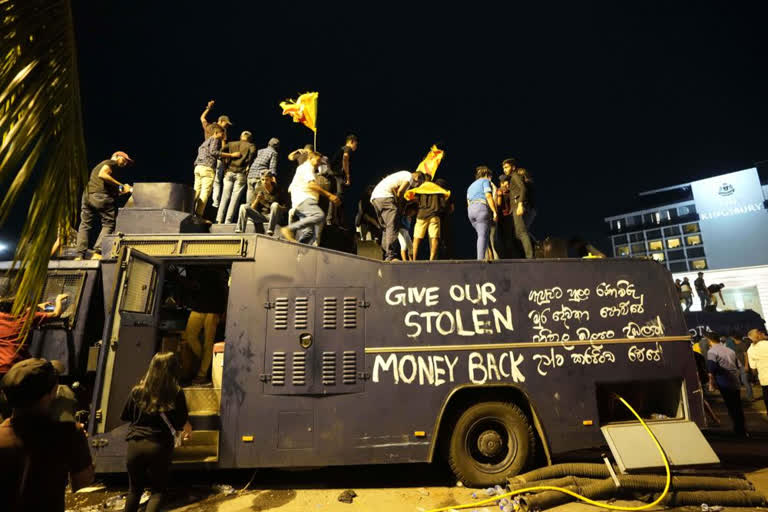Colombo (Sri Lanka):Sri Lanka’s prime minister said late last month that the island nation’s debt-laden economy had “collapsed” as it runs out of money to pay for food and fuel. Short of cash to pay for imports of such necessities and already defaulting on its debt, it is seeking help from neighbouring India and China and from the International Monetary Fund.
Prime Minister Ranil Wickremesinghe, who took office in May, was emphasizing the monumental task he faced in turning around an economy he said was heading for “rock bottom.” On Saturday both he and President Gotabaya Rajapaksa agreed to resign amid mounting pressure from protesters who stormed both their residences and set fire to one of them.
Sri Lankans are skipping meals as they endure shortages and lining up for hours to try to buy scarce fuel. It’s a harsh reality for a country whose economy had been growing quickly, with a growing and comfortable middle class, until the latest crisis deepened.
How serious is this crisis?
The government owes $51 billion and is unable to make interest payments on its loans, let alone put a dent in the amount borrowed. Tourism, an important engine of economic growth, has sputtered because of the pandemic and concerns about safety after the terror attacks in 2019. And its currency has collapsed by 80%, making imports more expensive and worsening inflation that is already out of control, with food costs rising 57%, according to official data.
The result is a country hurtling towards bankruptcy, with hardly any money to import gasoline, milk, cooking gas and toilet paper. Political corruption is also a problem; not only did it play a role in the country squandering its wealth, but it also complicates any financial rescue for Sri Lanka.
Anit Mukherjee, a policy fellow and economist at the Center for Global Development in Washington, said any assistance from the IMF or World Bank should come with strict conditions to make sure the aid isn’t mismanaged. Still, Mukherjee noted that Sri Lanka sits in one of the world’s busiest shipping lanes, so letting a country of such strategic significance collapse is not an option.
How is it all affecting real people?
Tropical Sri Lanka normally is not lacking in food, but people are going hungry. The U.N. World Food Program says nearly nine of 10 families are skipping meals or otherwise skimping to stretch out their food, while 3 million are receiving emergency humanitarian aid. Doctors have resorted to social media to try to get critical supplies of equipment and medicine. Growing numbers of Sri Lankans are seeking passports to go overseas in search of work. Government workers have been given an extra day off for three months to allow them time to grow their own food. In short, people are suffering and desperate for things to improve.
Why is the economy in such dire straits?
Economists say the crisis stems from domestic factors such as years of mismanagement and corruption. Much of the public’s ire has focused on President Rajapaksa and his brother, former Prime Minister Mahinda Rajapaksa. The latter resigned in May after weeks of anti-government protests that eventually turned violent.
Conditions have been deteriorating for the past several years. In 2019, Easter suicide bombings at churches and hotels killed more than 260 people. That devastated tourism, a key source of foreign exchange. The government needed to boost its revenues as foreign debt for big infrastructure projects soared, but instead, Rajapaksa pushed through the largest tax cuts in Sri Lankan history.
